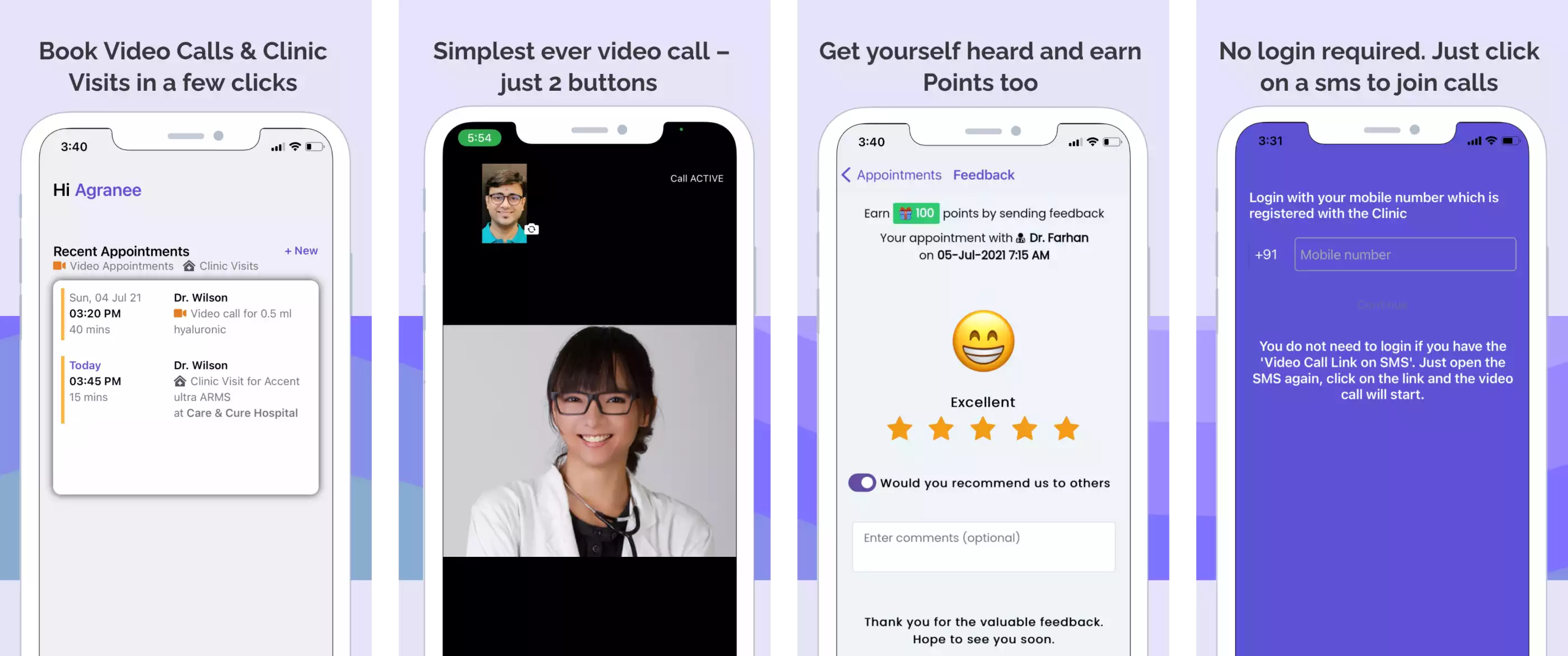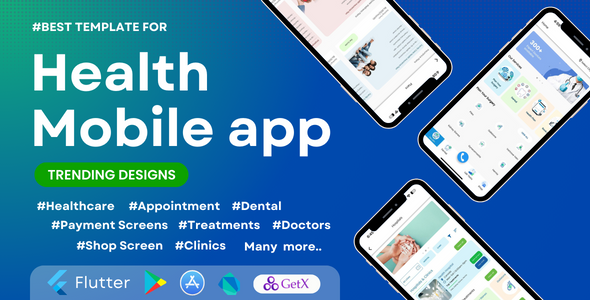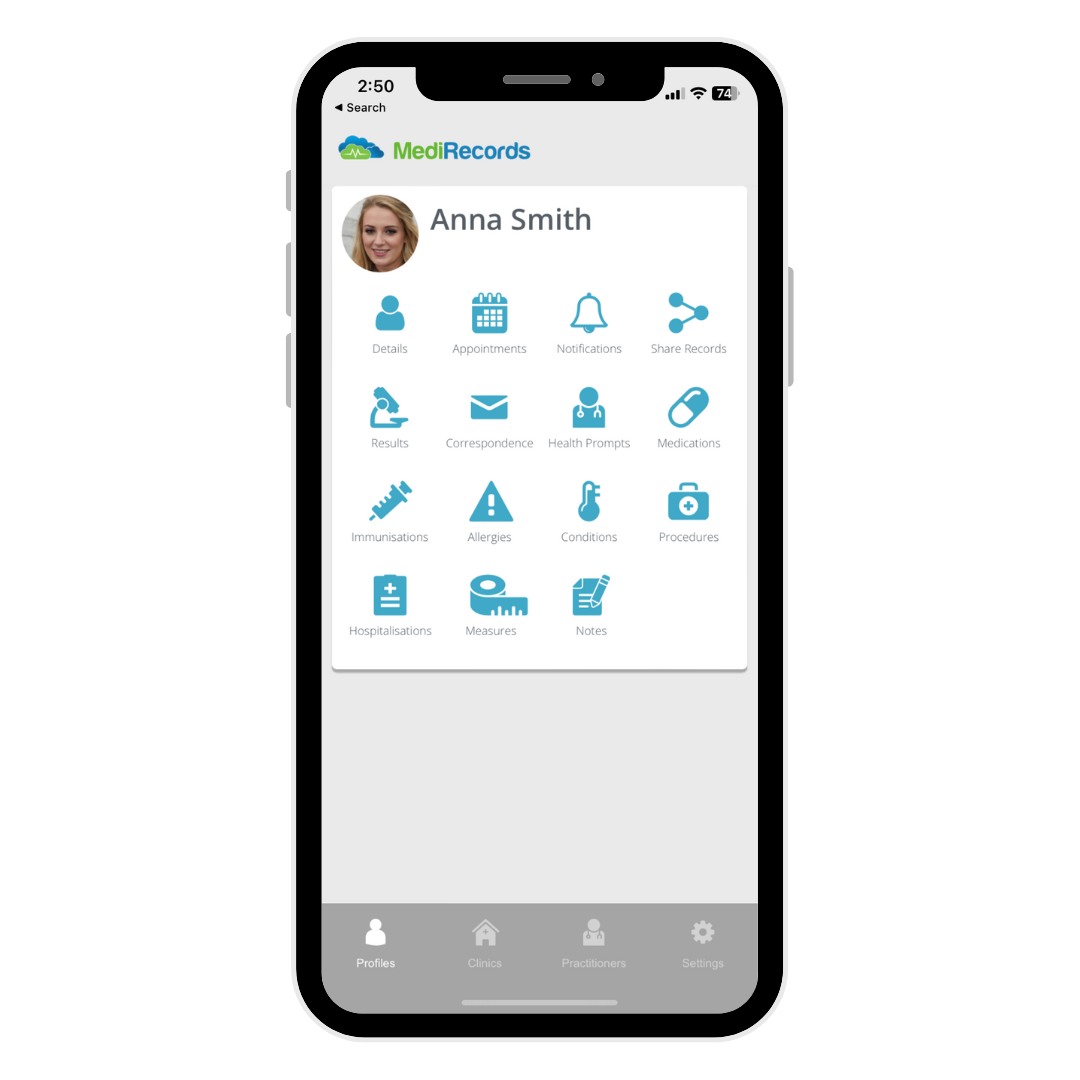The Future of Health Care: Why Clinics Required a Mobile App Today
As the medical care landscape proceeds to progress, centers deal with placing stress to adapt to individual assumptions for higher comfort and availability. The assimilation of mobile applications can offer as a crucial method for enhancing individual interaction and simplifying procedures.
Transforming Individual Expectations
As the landscape of health care develops, client expectations are undergoing a significant makeover. Today's people are significantly looking for comfort, ease of access, and personalized care. With the surge of innovation, especially mobile applications, individuals currently expect a seamless assimilation of health care services right into their everyday lives. They desire the ability to take care of visits, access clinical records, and communicate with medical care service providers via their smart devices, mirroring a change towards a more positive approach to wellness administration.
Additionally, clients are ending up being much more educated and encouraged, commonly looking into conditions and treatments on-line before examinations. This increased recognition is combined with a need for transparency in health care processes, consisting of price estimates and treatment choices. As a result, carriers are compelled to adjust by adopting digital devices that enhance the patient experience.
The expectation for prompt and effective communication has actually never ever been greater, with several patients taking into consideration responsiveness an essential element of quality care. mobile app for clinics. In this evolving landscape, medical care companies should acknowledge these changing assumptions and leverage mobile applications to foster an extra patient-centric method, making certain that they not just fulfill yet go beyond the criteria established by today's informed consumers
Enhancing Client Engagement

Mobile applications assist in interaction between people and doctor, enabling real-time appointment organizing, suggestions for medication adherence, and direct messaging features. These performances not just enhance convenience yet also build a sense of responsibility among individuals. Mobile apps can use academic material customized to individual requirements, helping people better comprehend their conditions and therapy options.
The integration of gamification elements within health care applications can likewise motivate clients to involve in healthy actions, strengthening positive way of living modifications. Ultimately, improving client involvement with mobile applications leads to improved wellness outcomes, better client complete satisfaction, and a more collective healthcare experience.
Simplifying Center Procedures
Improving facility operations is essential for improving operations effectiveness and maximizing client treatment. The implementation of mobile these details applications can substantially reduce management worries, allowing medical care suppliers to focus a lot more on patient interactions. By automating visit organizing, patient check-ins, and invoicing procedures, clinics can reduce wait times and boost total operational effectiveness.
Mobile applications also facilitate real-time access to internet person records, allowing health care specialists to make informed decisions promptly. This immediacy not only improves the top quality of treatment but also lowers the likelihood of errors related to lost or obsoleted information. Moreover, leveraging mobile modern technology sustains an extra organized method to managing patient follow-ups and treatment strategies, making certain that no crucial steps are neglected.
This permits for timely replenishment and helps avoid interruptions in patient treatment due to stock shortages. By incorporating these functionalities right into their daily procedures, clinics can develop a more effective and cohesive atmosphere, ultimately leading to enhanced patient results and satisfaction.
Improving Interaction Networks
Efficient interaction is frequently mentioned as a cornerstone of top quality healthcare shipment. In today's busy clinical setting, mobile applications can significantly boost interaction networks in between facilities, clients, and healthcare companies. By incorporating mobile apps right into their procedures, clinics can assist in real-time interactions, making certain that people get timely details regarding their appointments, examination results, and therapy strategies.
Mobile applications likewise empower patients to interact straight with their medical care groups via secure messaging functions. This direct line of interaction promotes a feeling of involvement and enables prompt information of concerns, which can result in better adherence to therapy methods. In addition, push notices can advise individuals of upcoming consultations or drug timetables, lowering no-show prices and boosting total health and wellness results.

Staying Affordable in Health Care
In a swiftly developing medical care landscape, organizations need to focus on advancement and flexibility to maintain an affordable side. The integration of mobile applications into medical care services is no more optional; it is crucial for clinics aiming to boost client involvement, streamline operations, and enhance total solution delivery.
As clients significantly rely upon digital platforms for health and wellness monitoring, facilities that fail to adopt mobile innovation danger dropping behind. A properly designed mobile application can offer features such as visit scheduling, telemedicine examinations, and accessibility to clinical documents, giving patients with convenience and fostering loyalty.

Rivals are likewise buying mobile remedies, so staying ahead calls for constant renovation and staying educated regarding technological improvements. Centers should not just execute mobile applications but likewise engage in normal updates and refinements. Inevitably, the successful assimilation of mobile innovation will certainly differentiate forward-thinking medical care organizations and established the benchmark for patient-centric care in an electronic world.
Final Thought
In verdict, the assimilation of mobile applications in facilities is essential to deal with the developing landscape of client expectations. Eventually, the tactical application of mobile apps represents an essential step toward delivering accessible and tailored medical care, therefore satisfying the requirements of today's equipped clients.
Eventually, boosting individual interaction with mobile applications leads to enhanced health and wellness results, greater client fulfillment, and a much more collective healthcare experience.Mobile apps also promote real-time accessibility to individual records, enabling healthcare professionals to make enlightened choices swiftly. In today's hectic medical environment, mobile applications can significantly boost interaction channels between clinics, people, and medical care service providers.Mobile apps additionally encourage clients to interact straight with their medical care groups with safe messaging functions. Eventually, the tactical implementation of mobile applications represents a crucial action toward providing obtainable and tailored medical care, therefore satisfying the needs of today's empowered patients.